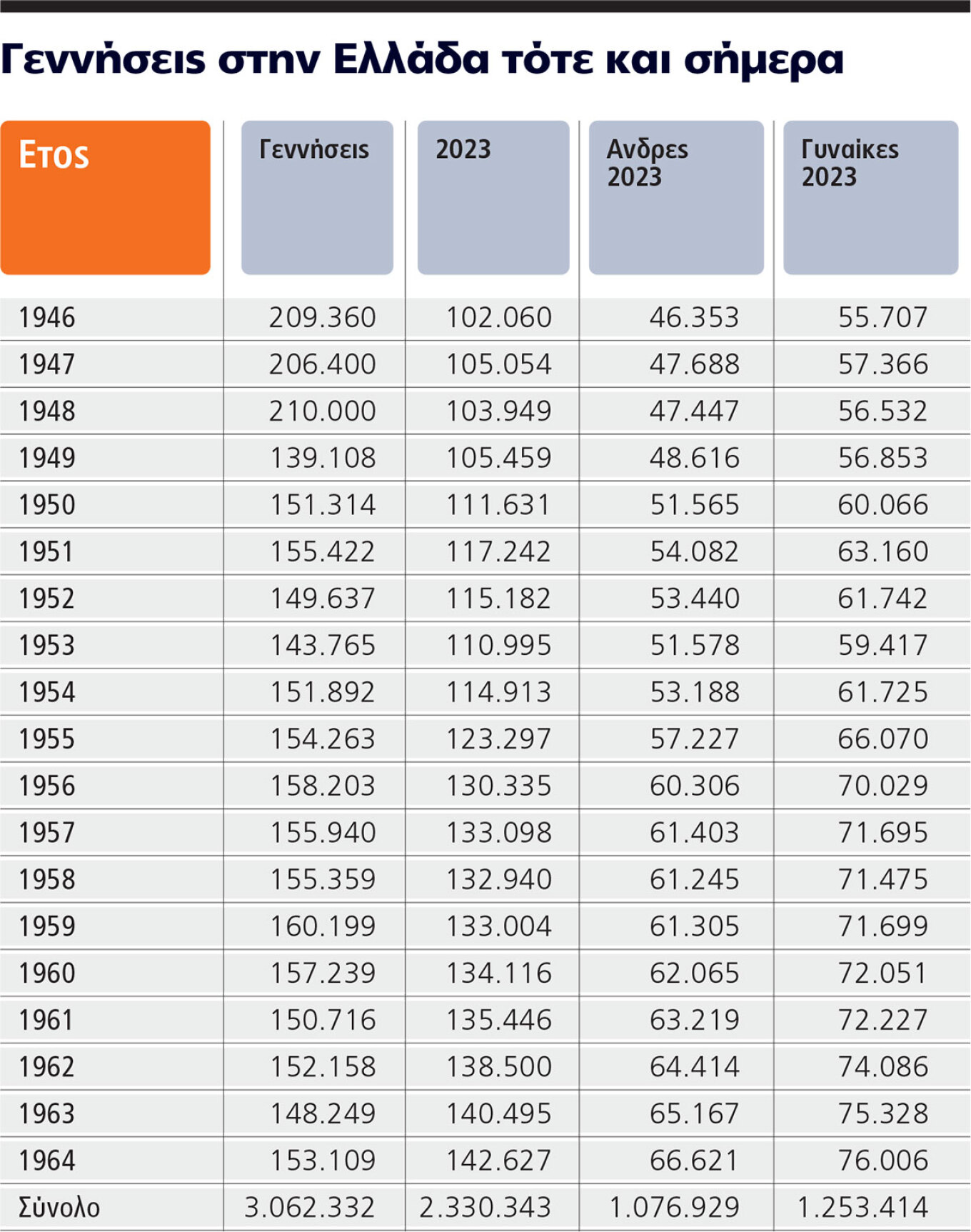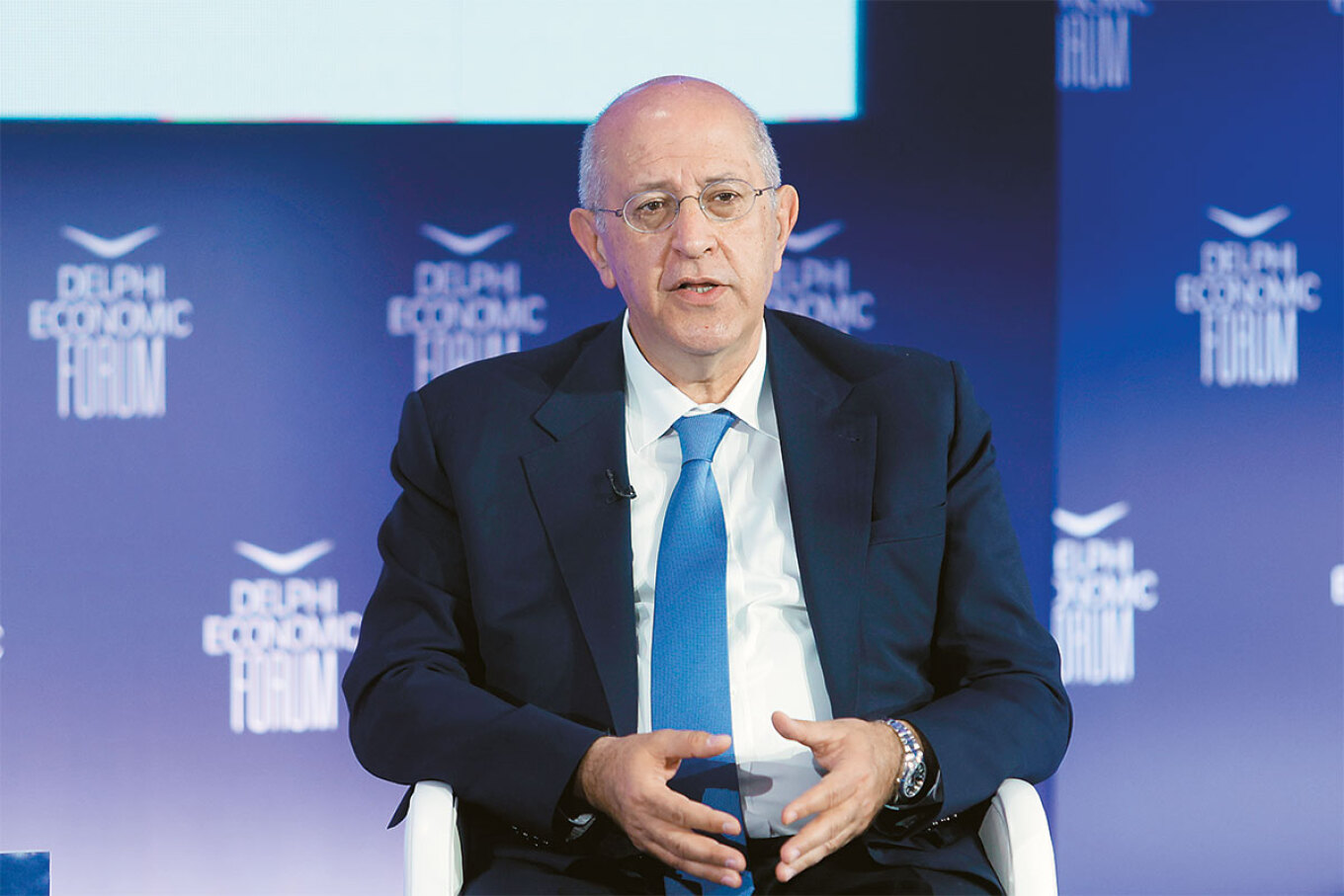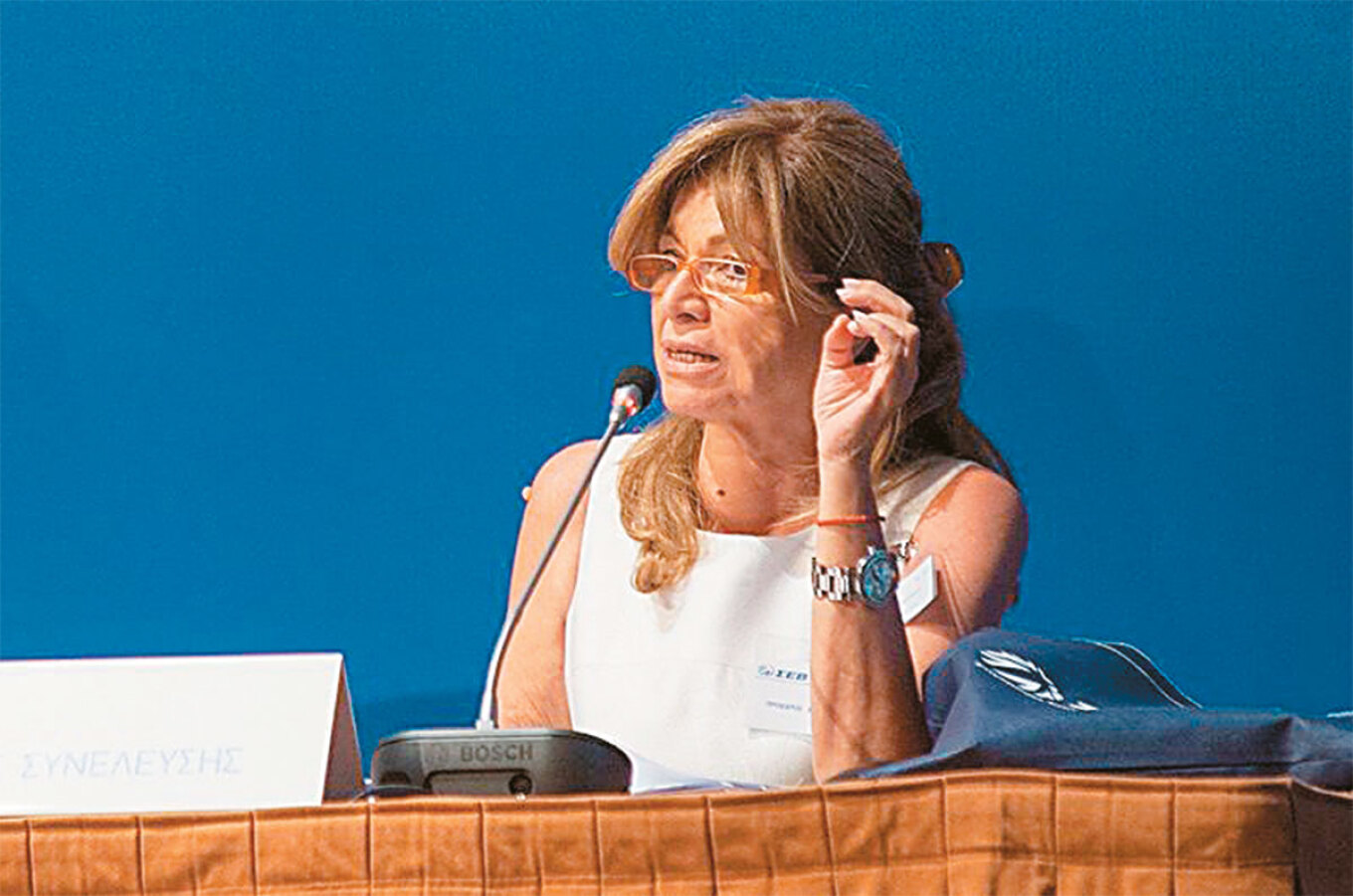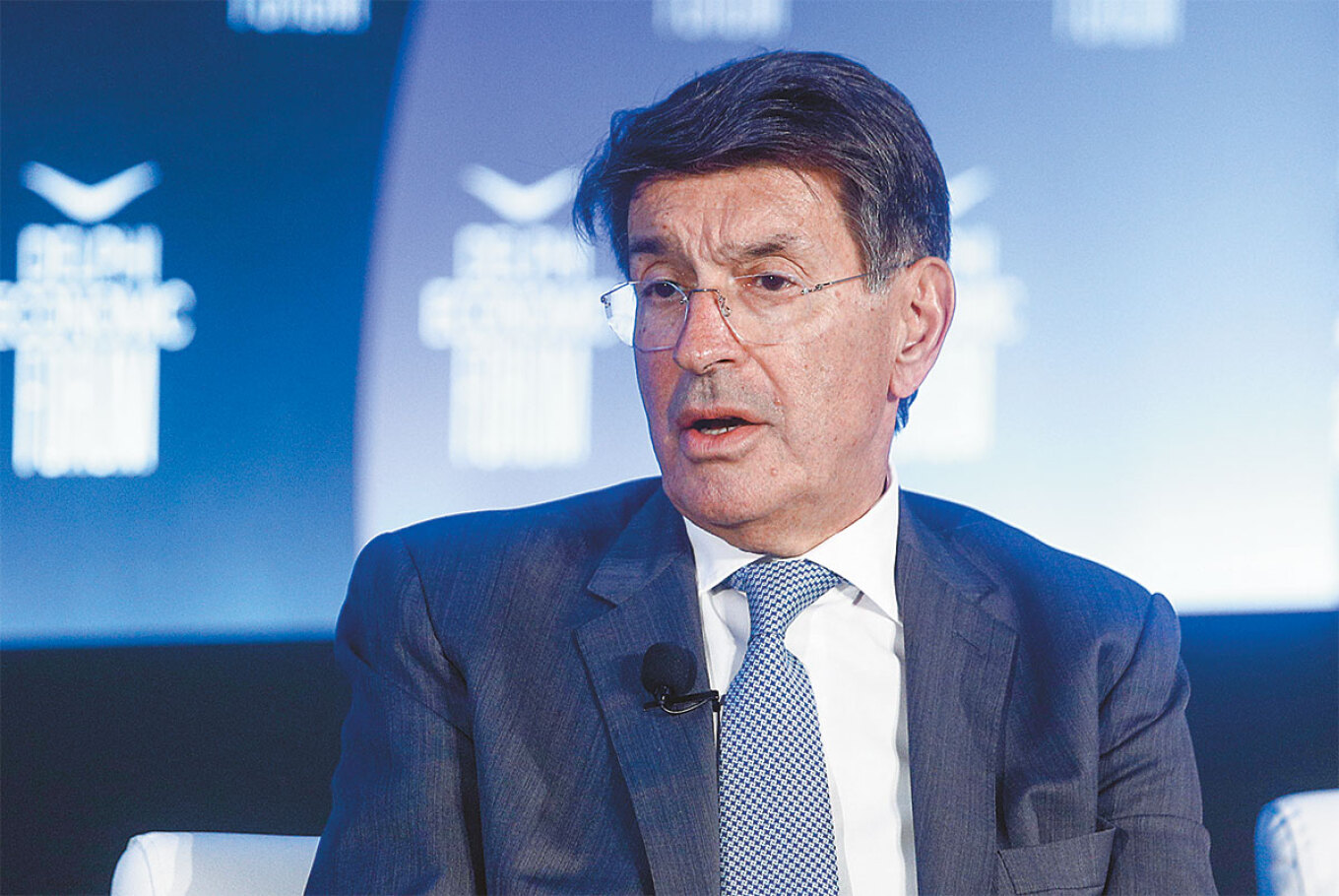In 1971, when Giorgos Zampetas released the song “O Penintaris” (“The Fifty-Year-Old”), he had a timeless success in mind. The song, which became an instant hit, painted a much more optimistic future for those entering their sixth decade of life. Zampetas, known for his great music, also had the folk wisdom to capture the social trends of his time and express them in song.
In 2024, this song has become somewhat outdated. While it still entertains, if Zampetas were alive and composing today, he would likely update the title to reflect modern trends: “The Seventy-Year-Old.”
Or, in today’s terms, the “boomer.” A term originating from the U.S., it describes those born between 1946 and 1964 — people now aged between 60 and 78. These individuals emerged from the post-World War II baby boom, not just in the U.S., but globally, carrying an optimism for a better, safer, and more prosperous future. So, what is the Greek boomer like today?
To get a clear picture, one must look at the numbers. It’s evident that boomers are more active than previous generations, both socially and economically. This is why the “60+” demographic has begun to attract the attention of advertisers, whereas just a few years ago, it was considered insignificant and unmarketable.
How many boomers are there in Greece today? According to ELSTAT, there are 3,062,332 men and women born in Greece during this time frame (1946-1964). The most recent data shows that over 75% were still alive in 2023 (2,330,343). This is a significant number, representing over 22% of the Greek population — meaning that, statistically, one in five people you see on the street belongs to this group.
The major change isn’t so much about life expectancy as it is about the behavior of these individuals. Greece has long had one of the highest life expectancies, even from the early 20th century. For 2024, the average life expectancy in Greece is 82.2 years (84.7 for women and 79.8 for men), placing the country among the top 20 globally and the top 12 in Europe.

Deposits and Real Estate
It’s well-known that Greek boomers control the majority of bank deposits and own the largest share of real estate. According to data from the Deposit Guarantee Fund, the age curve closely mirrors the curve of deposit amounts. Accounts with at least one holder over the age of 60 make up more than 50% of the total and, more importantly, represent over 65% of all deposits.
However, the new trend is that this money is much more “active” than it was a few years ago. In the past, bank employees shared stories about “inactive” accounts holding seven or even eight-figure sums. This has changed. On one hand, banks now actively engage with these clients by offering safe products (primarily locking funds for better interest rates), and on the other, boomers are more interested in managing their money rather than simply letting it accumulate and updating their passbooks every six months.
This is also where the concept of joint account holders comes into play. Since 2015, when Greece shifted overnight from in-person banking to ATMs, and older people were pushed (many reluctantly) to learn how to use debit cards, over 90% of previously single-holder accounts gained a second holder, usually someone younger. While some transactions may be initiated by these joint account holders, boomers are at an age where, in most cases, they consent to how their money is managed.
Another key trait of Greek boomers is their desire to continue working. Data from e-EFKA shows that in 2024, the number of registrations on the platform for retired individuals declaring employment doubled. This demonstrates that the younger boomers, in particular, have no issue continuing to work. This trend was further encouraged by the Ministry of Labor and Social Security’s decision to ease the rules for pensioners re-entering the workforce, including the removal of the 30% pension deduction penalty earlier in the year. Applications rose from 36,000 in 2023 to 81,000 in 2024, highlighting that it’s not just about money but also the desire to stay active and contribute.
More importantly, the presence of those aged 60+ in leadership roles in large companies remains significant, even in companies where they don’t hold shares. Trust in experience leads at least 50% of major companies to include boomers not only on their boards but also in executive roles (such as CEOs, managing directors, etc.), rather than opting for the 40-something white-collar generation. While the compensation in these roles is high, the main appeal lies in participating in decision-making and the action that such positions offer.
A long-standing characteristic of Greek boomers is their participation in elections. This age group consistently shows the highest voter turnout rates, regardless of the importance of the election. Data from the Ministry of the Interior regarding the 2023 parliamentary elections revealed that voter turnout among those aged 60-80 exceeded 65.2% of registered voters. This represents a nearly 12-point difference compared to the general turnout rate (53.4%), showing how actively they feel about influencing political decisions and shaping the political landscape. This engagement largely stems from their personal experiences.
Most of them lived through (even as teenagers) the 1967 coup and the subsequent seven-year dictatorship, which kept them away from the polls for a decade. They understand much more deeply the value of voting rights and how precious they are, compared to even the next generation, Gen X, which tends to view voting as a given or a part of the established system.
Small Pleasures
The average Greek boomer has money and is willing to spend it. On what? Tradition and stereotypes often portray a loving grandparent who spends most of their income on their grandchildren. During the financial crisis, they were a pillar of stability for their children’s households, often covering regular expenses. Whether nearing retirement or already retired, they sought to engage in activities completely unrelated to their previous work. The pleasures they allowed themselves didn’t extend beyond daily gossip at the coffee shop, a neighborhood senior group trip, or a longer stay at the family’s holiday home.
It’s time to wipe away those old notions. The boomer of 2024 wants to spend money on themselves, their well-being, and enjoyment, aiming to extend both the quantity and quality of their life. They feel capable of working, which is why many choose to remain in the workforce even after retirement. Those in executive positions, where business decisions are made (and the pay is higher), show no inclination to hand over the reins to younger generations.
The vast majority of boomers no longer feel guilty about wanting to enjoy life. This is their greatest achievement. They won’t apologize for dressing well, enjoying quality entertainment, seeking unique vacation experiences, or even being active on social media platforms. They’ve demystified these things so much that they don’t hesitate to play board games that poke fun at their age.
A simple internet search reveals an entire business trend investing in beauty products and cosmetics exclusively for boomers. For example, we read about lipstick shades that revive early 1980s trends (when boomers were the key consumers, as they were in their 25-34 years), leopard and tortoiseshell patterns, small shoulder bags, and French fade manicures. The company that first introduced this trend for boomer women saw its sales increase by 27%.
Even more significant are the fitness statistics. A survey by the payment and shopping service Klarna shows that 46.3% of those aged 58-78 exercise at least three times a week. While 57% of them choose running over gym memberships, these numbers paint a completely different picture from the stereotype of an elderly man sitting in a coffee shop or a woman knitting and struggling to hold her grandchild for an extended period.
Greek boomers are also among the major consumers of bottled wines. According to data from online wine resale platforms, around 40% of those aged 60+ purchase wines online. Given the challenges many boomers face in accessing e-commerce, the actual percentage is likely even higher, though not by much.
Their familiarity with online shopping and the use of credit/debit cards was unprecedented, especially since for most, the transition was traumatic after the banks closed in 2015. According to Nexi Greece’s 2023 data, 83% of those aged 60-80 have made at least one online purchase. Some of these transactions may have been made using their debit card by their children or grandchildren, but the percentage is still notably high.

Spending on Travel
Vacations and tourism, in general, have become much more integral to the boomer lifestyle than in the past. According to a study by the Institute of Consumer Goods Retail Research, 70% of those aged 60+ insisted on vacationing in Greece but in places different from the traditional family holiday home. The majority spent between 300-600 euros per person on trips, and a strong majority (63.4%) invested more in their accommodation than in food or general entertainment.
Boomers also show greater sensitivity towards environmental issues and the world they are leaving for future generations. Compared to other age groups (Gen X, Millennials, etc.), they are the most concerned about climate change and environmental destruction. In Greece, 38.7% of boomers identified climate change and environmental degradation as the top global problem, surpassing concerns about inflation, poverty, or inequality.

Board Game
Modern grandparents are no longer just interacting with their grandchildren by reading them fairy tales or sharing stories from the past. The new trend involves including them in activities traditionally aimed at much younger people. The global board game “OK Boomer” has been on toy store shelves for years, aiming to get boomers actively involved with questions designed specifically for them, alongside questions for younger generations.
The phrase “OK Boomer” might have started as a dismissive remark in 2019, but it has since become a worldwide symbol of this generation. When an elderly man (whose identity remains unknown) commented that younger generations have “Peter Pan syndrome,” meaning they never want to grow up, one of the responses to him was the phrase “OK Boomer,” meaning “Leave us alone, old man.” Despite its derogatory tone, boomers have adopted the phrase themselves, using it with a sarcastic twist—further proof of how modern they’ve become.
Leaders in Top Companies
Spyros Theodoropoulos

Born in 1957, Spyros Theodoropoulos has spent more than 50 years leading businesses (taking over the family dairy shop at the age of 16 after his father’s sudden death). He founded Chipita S.A. and led it until 2021. He now heads Bespoke (owner of ION, Nikas, etc.) and aims to create a major food group. Currently the president of the Hellenic Federation of Enterprises (SEV), Theodoropoulos emphasizes that “it is important for people not to change their beliefs when a situation becomes difficult and not to make decisions or take actions that offer temporary relief. Decisions and solutions must lay the right foundations and not push problems further down the road, no matter how difficult that may be.”
Ioanna Papadopoulou

Ioanna Papadopoulou, the “Iron Lady of Biscuits,” with her dynamic personality and decisive actions, firmly steers a company that has deep ties to society and a history of over a century. A constant case study of a family business that innovated and thrived over time with products that have been a staple for generations. Her approach to business is summed up in her belief that “when your work is your passion, first and foremost, it doesn’t tire you; you enjoy it. And every day, you create.” She serves as president and CEO of E.I. Papadopoulos S.A., Hellenic Foods S.A., and IKE Real Estate S.A., companies that are steadily growing due to her energy and her drive for continuous improvement.
Theodoros Fessas

Born in 1951, Theodoros Fessas remains highly active in business with his creation, the Quest Group, which just last week acquired the electrical goods company Benroubis. Fessas studied Mechanical and Electrical Engineering at the National Technical University of Athens (NTUA) before moving to the UK, where he earned a master’s degree in Thermodynamics from the University of Birmingham. In 1981, he founded Info Quest, a company that grew into one of the largest in Greece’s IT sector. Today, Quest Group, listed on the Athens Stock Exchange since 1998, includes companies like ACS Courier, Unisystems, Rainbow, Quest Energy, and Briq Properties. In May 2014, he was elected chairman of the Hellenic Federation of Enterprises (SEV).
Ask me anything
Explore related questions





